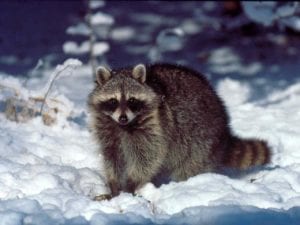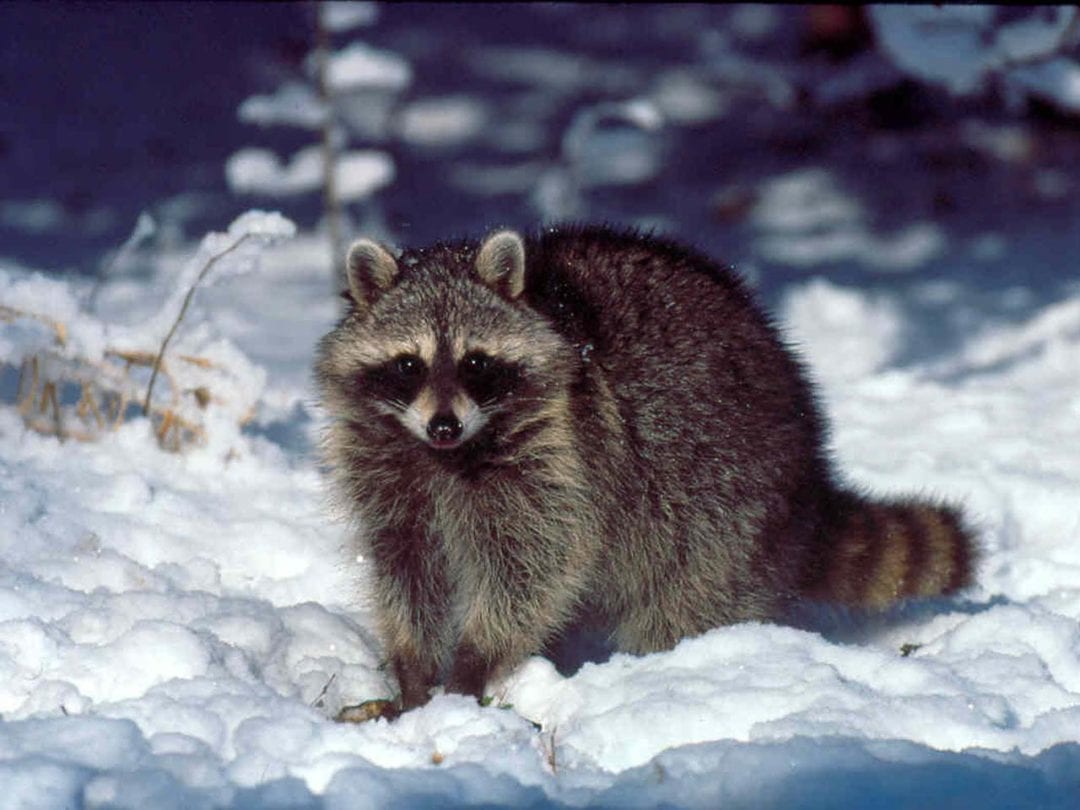Winter is synonymous with the holidays and cozy family gatherings. One thing you don’t want while you’re trying to celebrate the season is a pesky pest playing peekaboo in your house. While some animals hibernate during winter, many rodents do not. Your warm, comfy home is exactly the kind of place they prefer to ride out the cold. Here are some pests to watch out for this winter. 
How do animals behave during winter?
Mice
While some rodents such as ground squirrels hibernate during winter, others such as mice do not. As the temperature starts to drop outside, mice start searching for warmer dwellings. They tend to settle in dark, uninhabited places inside your home. They are notorious for chewing through drywall and can also gnaw through electrical wires and potentially cause fires, posing a major safety hazard. They also carry pathogens that spread diseases, such as salmonella and Hantavirus.
Raccoons
Raccoons don’t hibernate but instead will find dens in dark, warm places, such as ground burrows or brush piles in your yard. They might take shelter inside hollow trees or in chimneys or attics. Raccoons can also damage property and can carry rabies and roundworms.
Skunks
You might encounter skunks inside dens or under porch benches. Occasionally, skunks might decide to take shelter inside your home in the winter. You need to be cautious if you come across a skunk in your home, as they can be dangerous if they perceive you as a threat. They spray a foul-smelling discharge that can cause temporary blindness. They can also carry rabies.
Bats
Bats inhabit attics, shutters, and loose boards, and you’ll often find them dwelling in places inside your house. Bats can carry rabies and their guano (dropping) can carry diseases, such as Histoplasmosis.
Flying Squirrels
Flying squirrels are active at night and often gain entry to your home through an opening on the roof. They can damage wiring and compromise your insulation.
Pest control measures you can take
It can be difficult to know for sure if you have pests in your home, as they tend to stay out of sight as much as possible. Inspect your premises thoroughly and try the following measures to control pest infestation on your property.
- Seal holes and other potential points of entry. Seal any holes or cracked surfaces that might serve as entry points for rodents. A pest control professional knows the best methods for sealing holes and other points of entry that pests may try to use.
- Use animal-proof lids. Keep garbage can lids closed and secured to help prevent raccoons from digging into your trash.
- Keep it clean. Warmth and a regular supply of food are what attract most wildlife pests. Ensure your kitchen is clean, with no scraps for mice and other types of rodents to feast upon. Remove brush piles and debris to make the area less desirable to raccoons and other animals.
- Call a Pest Control Professional. Call in a NJ Pest specialist to evaluate your home for potential areas that are most susceptible to an infestation.
These measures will help you manage and control hibernating and non-hibernating rodents in winter. In the event of a persistent infestation, however, call NJ Pest to help rid your property of any pest problems.


